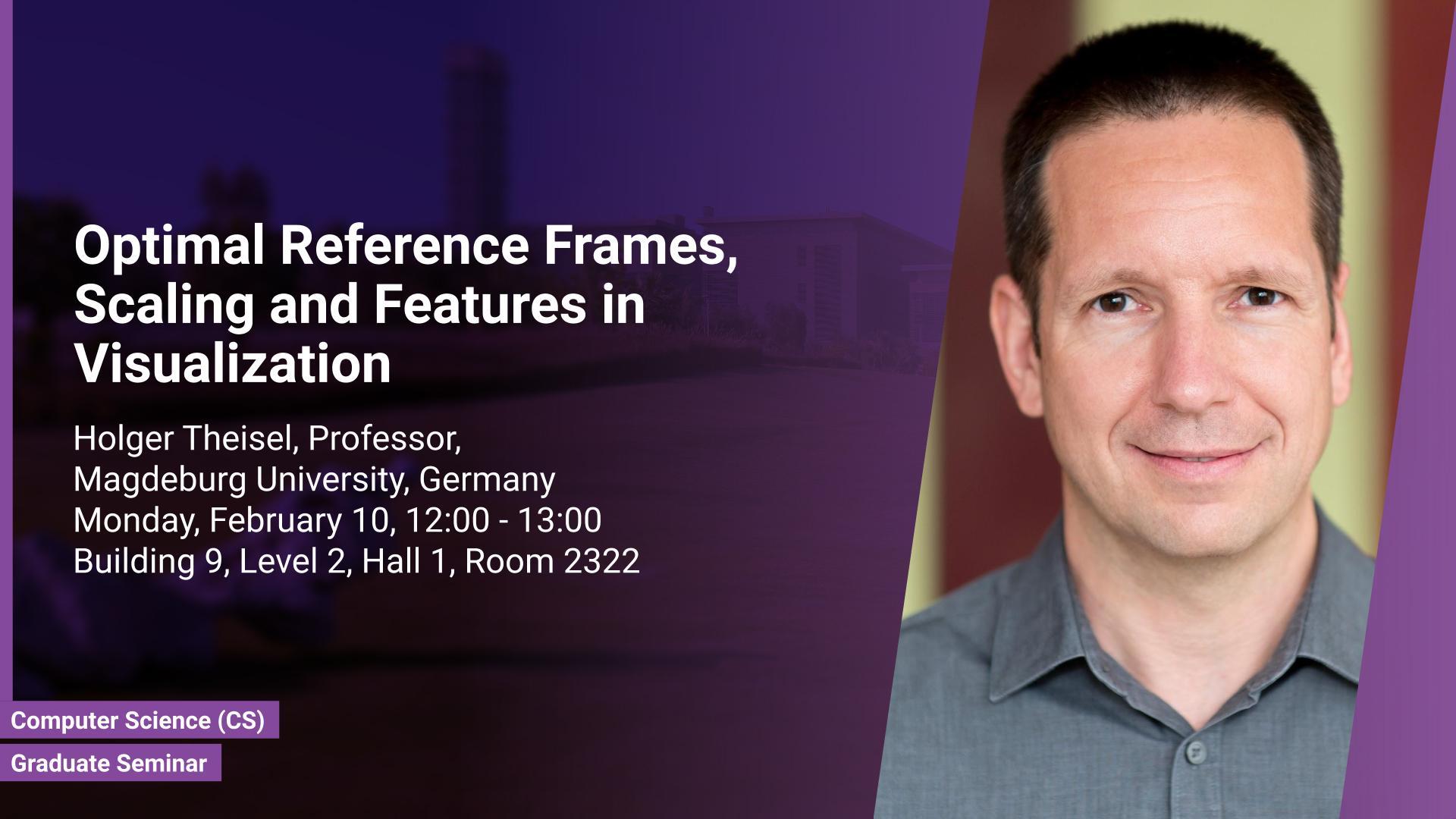Abstract
In Visualization, the success or failure of an analysis often depends on the choice of some subtle parameters or design choices. While simple heuristics are often sufficient, in some cases they make the analysis miserably fail. We present three approaches in visualization where a careful choice of optimal parameters results in completely new algorithms: 1) the choice of a reference frame for finding objective vortices in flow visualization, 2) the choice of a scaling of high-dimensional data sets for finding linear projections to 2D in information visualization, and 3) the choice of a feature definition along with numerical extraction methods for visualizing recirculation phenomena in flows.
Brief Biography
Holger Theisel is a professor for Visual Computing at Magdeburg University (Germany). He received his Ph.D. (1996) and habilitation (2001) degrees from the University of Rostock (Germany), and had research stays at Arizona State University (USA), ICIMAF Havana (Cuba), MPI Informatik Saarbrücken (Germany), and Bielefeld University (Germany). His research interests focus on scientific visualization as well as on geometric design, geometry processing, and information visualization and Visual Analytics. He co-authored more than 70 papers in the top journals in the field. He served as General Chair of the IEEE VIS 2018 conference in Berlin.
